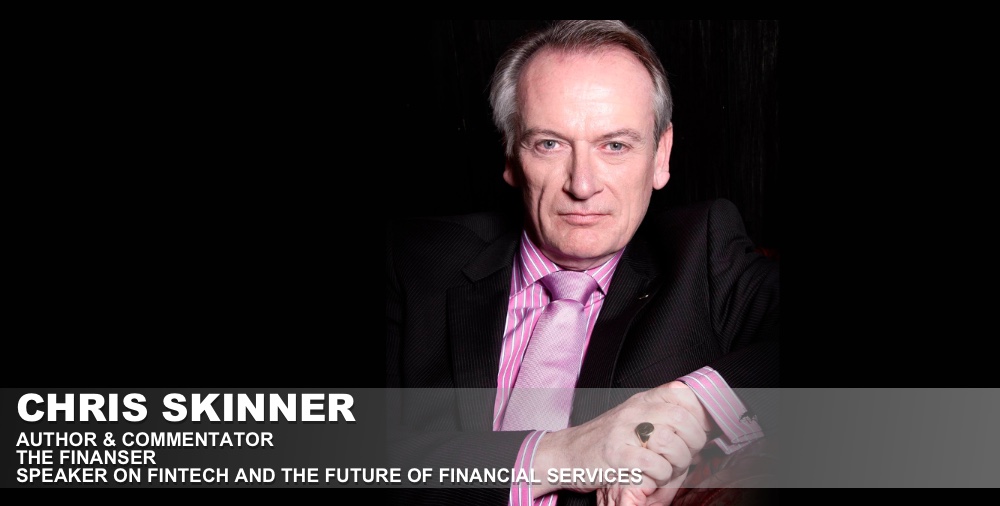
an article written by Chris Skinner, author of the bestselling book Digital Bank. He has been voted „one of the most influential people in banking” and „one of the Fintech Leaders you need to follow”. Chris is coming to Banking 4.0 to give a keynote speech.
Bill Gates said in the early 1990s that “we need banking but we don’t need banks anymore”. He was wrong.
I hosted a banking seminar in the late 1990s where David Llewellyn, a Professor of Money, stood up and stated that “there will be more change in the next five years in banking than we’ve seen in the last fifty”. He was wrong.
In 2009, reflecting on the financial crisis, Paul Volker, the former head of the Federal Reserve, said “the ATM has been the only useful innovation in banking for the past twenty years”. He was wrong.
But at the time, they were all right in their own way.
What is going on here is that old nugget: we overestimate the speed of technological change and underestimate the impact (Amara’s Law, named after Roy Amara who coined this back in the 1970s).
I guess we have seen this pretty often in the investment and business world. The internet boom and bust being a good example. We overestimated how fast the internet would take over business, lost a load and then wished we had a stake in Amazon. It’s pretty true of many other areas too, but has never been true in banking. In banking, it’s boring. Nothing much changes …
… until now.
This hit home for me when I received the press release of First Direct’s thirtieth birthday the other day. The bank launched on 1st October 1989. Back then, it was an innovation from Midland Bank to create Britain’s first branchless bank using call centre technology. That was huge innovation back then and, even today, First Direct is voted consistently in the top for customer service for any UK business, because its business model is built for remote relationships.
However, thirty years ago … just thirty years ago … the press release described the world like so:
Thirty years ago, many people still had rotary phones, so a 24/7 telephone bank was revolutionary. If you wanted to interact with your bank you did it in a branch, with banks only opening between 9:30 and 3:30 and closing altogether at weekends. Back then branch managers still made the key decisions on who could have a loan or a mortgage, and there were long waits to get either. Cheques were how most people paid people and services, with more long queues in branches on Fridays. ATMs were a rarity, and mobile phones were in their infancy (and the size of a house brick!).
OMG how the world has changed. Dramatically. These were the things that Bill Gates and David Llewellyn were getting at: the internet has arrived. Business will move to digital and remote. You have to get with it. Transform or die!
The thing is they were way too early in their view of the world. The dotcom bust was just around the corner, the mobile phone was still a brick, and no one had any idea of broadband let alone 5G.
That is why, even a decade later, Paul Volker was right: there is nothing that was innovative in banking … well, apart from collateralised debt obligations and mortgage-backed securities.
A decade later, everything has changed. I believe it is due to two key technologies coming of age. The first is obvious: telecoms merged with technology to create the smartphone revolution led by Apple. Moving from a telephone to a computer in the pocket and purse has shifted humans from conversations to swipes in just ten years. That is a radical change.
The second is more subtle, but just as important. Cloud computing has come of age. Again, a nascent technology a decade ago, the fact that anyone can launch an app or an API in an app store – that wouldn’t be around if it wasn’t for the smartphone – and scale that app or API overnight to take billions of transactions – that wouldn’t be possible without cloud – is the radical change.
These are the two technologies that have allowed thousands of start-ups to … well, start-up. There would be no Uber, Airbnb, Stripe or Apple if it wasn’t for the smartphone, the app store, API plug-and-play code and cloud computing.
As a result of these technologies, we may finally have reached the point where the over-estimations of Bill Gates, David Llewellyn and crew are now a reality. However, in the quarter century in between, maybe the banks have adapted to keep up? What do you think?
Banking 4.0 – „how was the experience for you”
„To be honest I think that Sinaia, your conference, is much better then Davos.”
Many more interesting quotes in the video below: